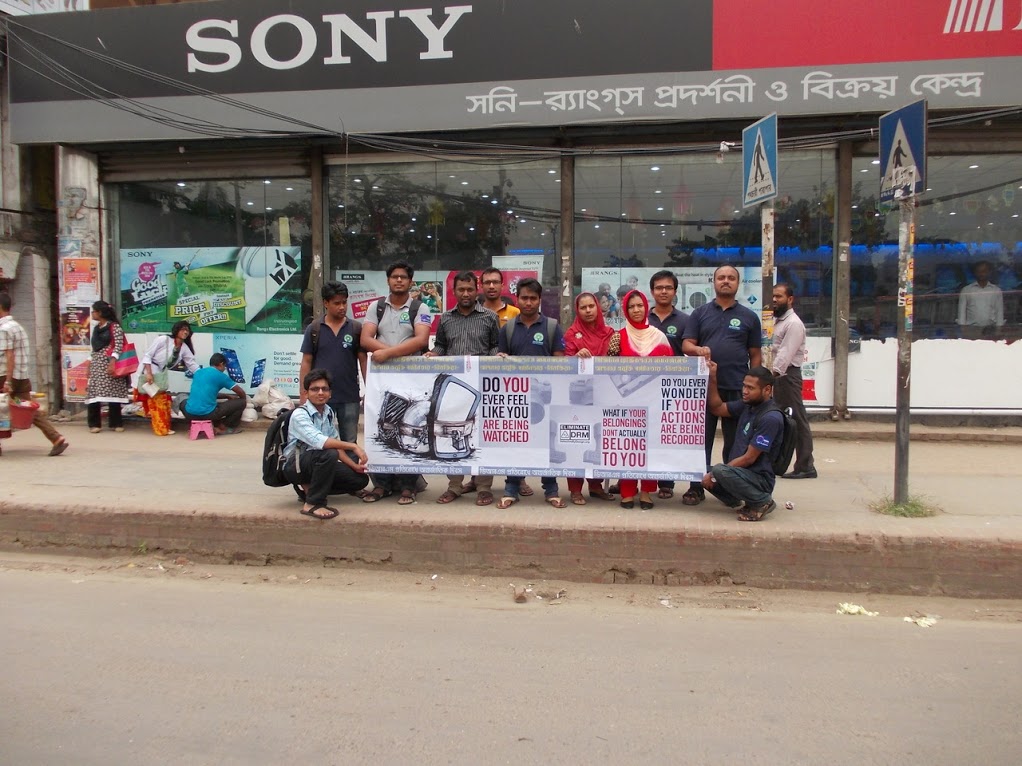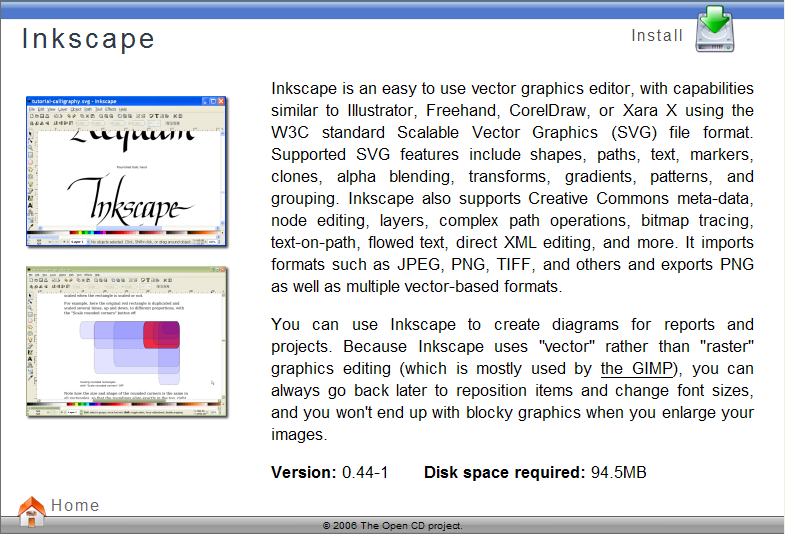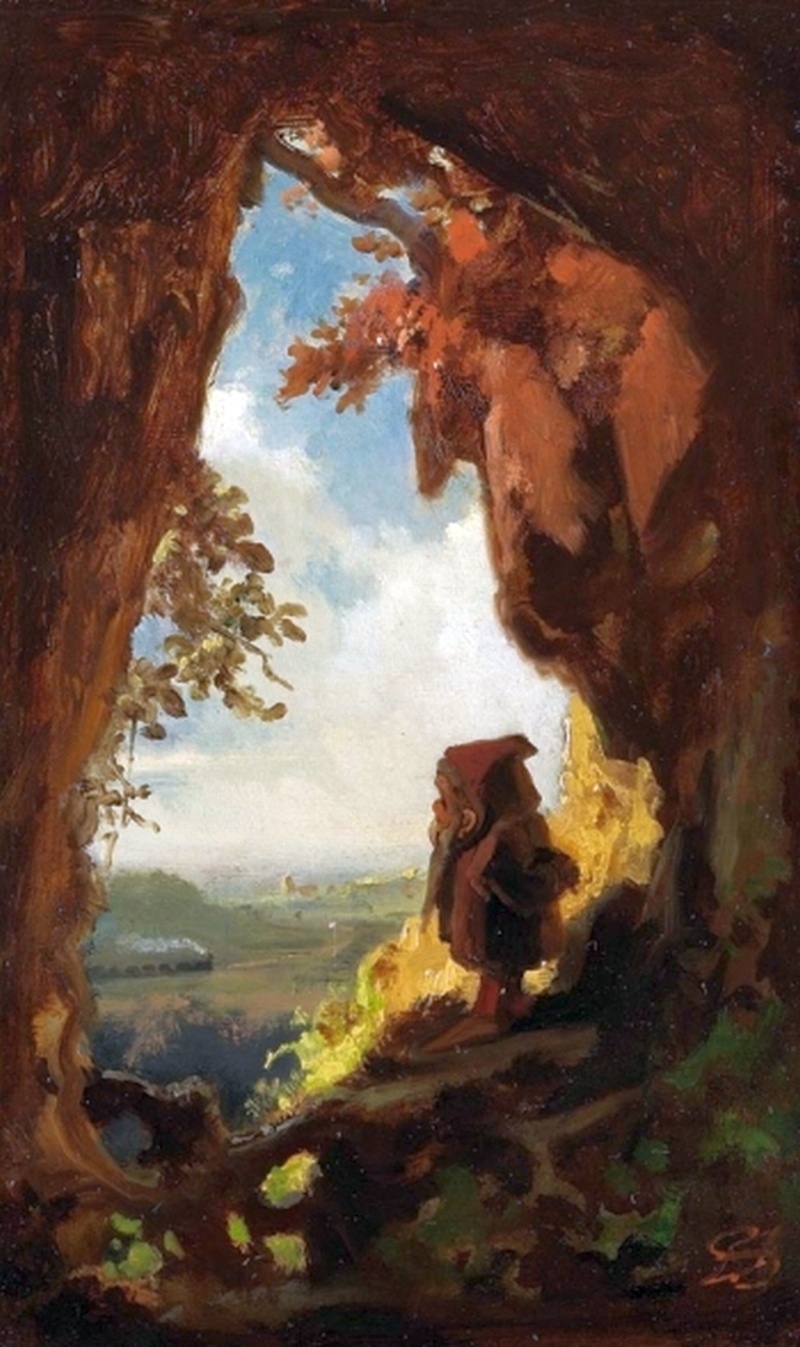|
Digital Freedom Foundation
Digital Freedom Foundation (DFF) is a non-profit organization established in 2004. The group is the lead organizer of Software Freedom Day, and Hardware Freedom Day, as well as other "freedom days". History The organization was founded in 2004 as Software Freedom International, and formally registered as a charity in 2007. In 2011, the group changed its name to the "Digital Freedom Foundation" to reflect the creation of additional "freedom days" celebrating culture, hardware, and education. In 2015, the DFF became responsible for organizing the annual Document Freedom Day, which was initially started by the Free Software Foundation Europe. The DFF had received tax-empt status in the United States under its original name in order to make donations tax-deductible. Since then, the organization moved to Hong Kong before registering in Cambodia following the relocation of several board members. Events The Digital Freedom Foundation organizes the following "freedom day" events ... [...More Info...] [...Related Items...] OR: [Wikipedia] [Google] [Baidu] |
Non-profit Organisation
A nonprofit organization (NPO) or non-profit organisation, also known as a non-business entity, not-for-profit organization, or nonprofit institution, is a legal entity organized and operated for a collective, public or social benefit, in contrast with an entity that operates as a business aiming to generate a profit for its owners. A nonprofit is subject to the non-distribution constraint: any revenues that exceed expenses must be committed to the organization's purpose, not taken by private parties. An array of organizations are nonprofit, including some political organizations, schools, business associations, churches, social clubs, and consumer cooperatives. Nonprofit entities may seek approval from governments to be tax-exempt, and some may also qualify to receive tax-deductible contributions, but an entity may incorporate as a nonprofit entity without securing tax-exempt status. Key aspects of nonprofits are accountability, trustworthiness, honesty, and openness to eve ... [...More Info...] [...Related Items...] OR: [Wikipedia] [Google] [Baidu] |
RUR-PLE
RUR - Python Learning Environment (RUR-PLE) is an educational tool to help students learn the Python programming language. Made by André Roberge. RUR-PLE uses the idea behind Karel the Robot, making the learning of Python programming more interesting. A student writes a program that controls a 'robot' that moves through a city consisting of a rectangular grid of streets (left-right) and avenues (up-down). It is very similar to Guido van Robot Guido is a given name Latinised from the Old High German name Wido. It originated in Medieval Italy. Guido later became a male first name in Austria, Germany, the Low Countries, Scandinavia, Spain, Portugal, Latin America and Switzerland. The mea ... (GvR), but RUR-PLE can use all Python features (while GvR only limited subset of syntax). RUR-PLE has 48 lessons (in main European languages and Chinese) with the code and robot environment examples to experiment with. A second implementation of RUR-PLE, Rurple NG is in progress. Reference ... [...More Info...] [...Related Items...] OR: [Wikipedia] [Google] [Baidu] |
International Day Against DRM
International Day Against DRM (IDAD), sometimes called just Day Against DRM or anti-DRM day, is a grassroots international observance of protests against digital rights management (DRM) technology. The event is intended as "a counterpoint to the pro-DRM message broadcast by powerful media and software companies" and aims to draw attention to Digital rights management#Opposition, DRM's anti-consumer aspects. Background International Day Against DRM has been also described as a reaction against the lobbyist-dominated World Intellectual Property Day of the World Intellectual Property Organization, which promotes DRM. World Intellectual Property Day has been criticized by the activists from civil society organizations such as IP Justice and the Electronic Information for Libraries who consider it one-sided propaganda as the marketing materials associated with the event, provided by WIPO, "come across as unrepresentative of other views and events". Michael Geist, a law professor at ... [...More Info...] [...Related Items...] OR: [Wikipedia] [Google] [Baidu] |
Public Domain Day
Public Domain Day (PDD) is an observance of when copyrights expire and works enter into the public domain. This legal transition of copyright works into the public domain usually happens every year on January 1 based on the individual copyright laws of each country. The observance of a "Public Domain Day" was initially informal; the earliest known mention was in 2004 by Wallace McLean (a Canadian public domain activist), with support for the idea echoed by Lawrence Lessig. Several websites list the authors whose works are entering the public domain each January 1. There are activities in countries around the world by various organizations all under the banner Public Domain Day. Public domain Copyright protection terms are typically described as expiring a number of years after the end of the calendar year when the author died ( or ''pma''). Durations vary by country; in many jurisdictions, including the US and European Union, copyright usually lasts 70 years '. In such count ... [...More Info...] [...Related Items...] OR: [Wikipedia] [Google] [Baidu] |
Frederick Noronha
Frederick Noronha (born 23 December 1963) in São Paulo, Brazil is a journalist based in Saligão in the Bardez taluka of Goa. He is active in cyberspace and involved with e-ventures involving Goa, developmental concerns and free software. Noronha writes mostly on free software / open source issues, technology, and computing issues in India. He is the co-founder of BytesForAll and the founder of the alternate publishing house, Goa 1556. Education Frederick Noronha received a B.Com. degree from Dempo College of Commerce and Economics, Panjim, and M.A. (English Literature) degrees from Goa University and University of Bombay. In 2021 he took a Ph.D. in English, focusing on publishing in twentieth-century Goa, via Goa University's Department of English (under Prof. Andre Rafael Fernandes). Noronha is also an alumnus of the Internationales Institut für Journalismus (G57 course, 1990). He received a scholarship from the Institute for Further Education of Journalists (Fojo), Swe ... [...More Info...] [...Related Items...] OR: [Wikipedia] [Google] [Baidu] |
Free Software Foundation
The Free Software Foundation (FSF) is a 501(c)#501(c)(3), 501(c)(3) non-profit organization founded by Richard Stallman on October 4, 1985, to support the free software movement, with the organization's preference for software being distributed under copyleft ("share alike") terms, such as with its own GNU General Public License. The FSF was incorporated in Boston, Massachusetts, United States, US, where it is also based. From its founding until the mid-1990s, FSF's funds were mostly used to employ software developers to write free software for the GNU Project. Since the mid-1990s, the FSF's employees and volunteers have mostly worked on legal and structural issues for the free software movement and the free software community. Consistent with its goals, the FSF aims to use only free software on its own computers. History The Free Software Foundation was founded in 1985 as a Nonprofit corporation, non-profit corporation supporting free software development. It continued existi ... [...More Info...] [...Related Items...] OR: [Wikipedia] [Google] [Baidu] |
Benjamin Mako Hill
Benjamin Mako Hill is a free software activist, hacker, author, and professor. He is a contributor and free software developer as part of the Debian and Ubuntu projects as well as the co-author of three technical manuals on the subject, ''Debian GNU/Linux 3.1 Bible'', ''The Official Ubuntu Server Book'', and ''The Official Ubuntu Book''. Hill is an assistant professor in Communication at the University of Washington. Biography Hill has an undergraduate degree in Literature & Technology from Hampshire College, a master's degree from the MIT Media Lab, and a PhD in an interdepartmental program involving the MIT Sloan School of Management and the MIT Media Lab. As of fall 2013, he is an assistant professor in the Department of Communication at the University of Washington. He is also a Fellow at the MIT Center for Civic Media where he coordinates the development of software for civic organizing. He has worked as an advisor and contractor for the One Laptop per Child project. He ... [...More Info...] [...Related Items...] OR: [Wikipedia] [Google] [Baidu] |
TheOpenCD
The now defunct OpenCD project aimed to introduce users of Microsoft Windows to the benefits of free and open-source software (FOSS). It is a CD image that can freely be downloaded and copied. The OpenCD team screened programs for stability, quality, and ease of installation, and only distributed programs available under an OSI-approved open-source license, which allows users to freely use and distribute the disc as they wish. It was sponsored by Canonical Ltd., for a period. The project was started in April 2002 in response to an article on linux.com by astrophysics student Henrik Nilsen Omma. In September 2007, project lead Chris Gray left the project to pursue his own open-source disc, called OpenDisc, citing numerous difficulties which he believed were negatively affecting the progress of the OpenCD project. As of September 27, 2007, the OpenCD project is no longer under active development. [...More Info...] [...Related Items...] OR: [Wikipedia] [Google] [Baidu] |
Linux Australia
Linux Australia is the national, Australian Free and Open Source Software Community organisation. It was founded in 1997 and formally incorporated in New South Wales as a non-profit organisation in 1999. Linux Australia aims to represent Australian Free and Open Source Software communities and to support and collaborate with related groups, including Linux User Groups in Australia. History and goals Linux Australia was co-founded by Terry Dawson and Gary Allpike. From humble beginnings the organisation was formally incorporated to provide legal support for the inaugural Conference of Australian Linux Users (now linux.conf.au). Over progressive years the organisation has steadily matured in its operation and today its major activities include the successful annual linux.conf.au open source conference, a grants program that seeds and supports relevant open source projects, and regular participation in public events such as conferences and exhibitions. Public relations activitie ... [...More Info...] [...Related Items...] OR: [Wikipedia] [Google] [Baidu] |
Pia Waugh
Pia Andrews (née Pia Smith, also formerly known as Pia Waugh), born 1979, is an open government leader and the ''Special Advisor, Digital & Client Data Workstream Lead'' for Employment and Social Development Canada (ESDC). Andrews spearheaded the growth of the Australian open government community by organising events such as GovHack, GovCamp and other events that bring together a diverse range of citizens who want to see government data made open for reuse. Previously, Andrews was known for her work as an Australian free software advocate. Her past positions include presidency of Software Freedom International; and presidency and vice-presidency of Linux Australia. Career Andrews was employed by IT services company Volante for several years. In 2005 Andrews was appointed Research Co-ordinator of the Australian Service for Knowledge of Open Source Software (ASK-OSS) project. From 2006 Andrews, with her then-husband Jeff Waugh, was a director of Waugh Partners, an Austral ... [...More Info...] [...Related Items...] OR: [Wikipedia] [Google] [Baidu] |
GNOME
A gnome is a mythological creature and diminutive spirit in Renaissance magic and alchemy, first introduced by Paracelsus in the 16th century and later adopted by more recent authors including those of modern fantasy literature. Its characteristics have been reinterpreted to suit the needs of various story tellers, but it is typically said to be a small humanoid that lives underground. Diminutive statues of gnomes introduced as lawn ornaments during the 19th century grew in popularity during the 20th century and came to be known as garden gnomes. History Origins The word comes from Renaissance Latin ''gnomus'', which first appears in ''A Book on Nymphs, Sylphs, Pygmies, and Salamanders, and on the Other Spirits'' by Paracelsus, published posthumously in Nysa in 1566 (and again in the Johannes Huser edition of 1589–1591 from an autograph by Paracelsus). The term may be an original invention of Paracelsus, possibly deriving the term from Latin ''gēnomos'' (itself represen ... [...More Info...] [...Related Items...] OR: [Wikipedia] [Google] [Baidu] |
Beijing GNU/Linux User Group
The Beijing GNU/Linux User Group (BLUG) was founded in Beijing on November 19, 2002, and has since met at least monthly without exception. It was awarded Best SFD 2007 event (1 of 3), Golden Bull 2008 by CSDN zh) as a technology driving group, and Best LUG of the Month by Format early 2008. The Beijing GNU/Linux User Group has also been the host of many famous actors of our movement such as RMS, Ulrich Drepper, Mark Shuttleworth, or Louis Suarez, to name just a few. The BLUG has grown from a monthly meeting organizer to offering a wide array of activities nowadays ran ... [...More Info...] [...Related Items...] OR: [Wikipedia] [Google] [Baidu] |





